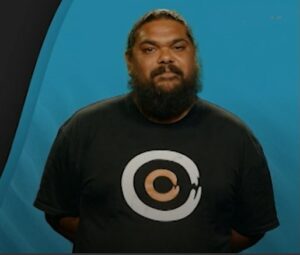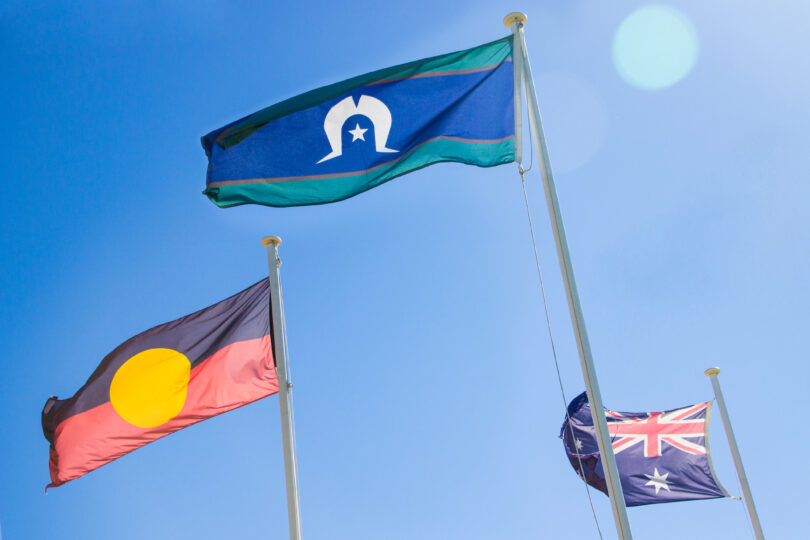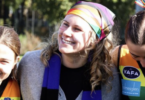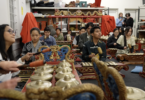Damien Williams of the ICTV on Indigenous stories told by non-Indigenous writers
Media coverage and commentary on the Voice to Parliament referendum continues to intensify as the proposed constitutional amendment draws closer to a vote.
Australians will soon decide whether or not to introduce into federal parliament an Indigenous voice to advise on Indigenous matters. Paradoxically, as the vote draws closer, the commentary and voices of non-Indigenous Australians on Indigenous matters are louder than ever.

As the vote on the Voice to Parliament draws closer, the Australian media are reflecting on their role in undermining previous Indigenous initiatives for self-determination. A 2021 study by the University of Technology Sydney analysed 45 years of print media reporting of Aboriginal initiatives for self-determination, finding that the media have “systematically and substantially failed – if not undermined and denied – Aboriginal aspirations for self-determination and for enduring political settlements.”
Concerns about the ability of non-Indigenous journalists to accurately report on Indigenous issues and perspectives are not new. Research has shown the prevalence of non-Indigenous journalists to engage in ‘deficit discourse’ a mode of language that consistently frames Indigenous identity in a narrative of deficiency. Indigenous scholars and journalists such as Jack Latimore, Indigenous affairs journalist at The Age and Luke Pearson, founder of IndigenousX, have written compelling pieces regarding non-Indigenous journalists reporting on Indigenous affairs.
While there have been improvements across the Australian media landscape to increase Indigenous representation, progress has been slow. A 2022 report by Media Diversity Australia found that Indigenous representation in Australian television news appearances had increased from 1.2 per cent in 2019 to 5.4 per cent in 2022.
Despite slow improvements in Indigenous representation, non-Indigenous voices continue to dominate the discourse on Indigenous matters and perspectives in the media. A 2021 study by ‘All Together Now’ analysed opinion pieces on Indigenous affairs that were published by five leading newspapers. The study found that only 20 per cent of articles were written by Indigenous authors, while half were written by authors of Anglo-Celtic background.
The ongoing coverage of the Voice to Parliament referendum has highlighted not only the underrepresentation of Indigenous voices in the Australian media landscape but systemic shortcomings in mainstream media organisations that undermine inclusive media coverage.
There are very few Indigenous-led media organisations in Australia, which has led to a lack of Indigenous language translation services across mainstream media organisations.
NITV, which is owned by SBS, is Australia’s only national Aboriginal and Torres Strait Islander television news channel. SBS was established by federal government legislation in 1978 (in the aftermath of the White Australia Policy) as Australia’s national multilingual and multicultural media service. It receives the majority of its funding from the Australian government.
SBS, which is federally mandated to provide a multilingual Australian media service, delivers its standard media coverage in 63 different languages. Yet, none are Indigenous languages.
Lenore Taylor, the editor of the Guardian Australia, says that the Australian media has a special responsibility when reporting on the Voice referendum.
“In this discussion, the media has a particular responsibility to help readers understand the facts and the historical, political and legal context, to call out falsehoods and to avoid fuelling an ideological outrage cycle.”
Arguably, however, the most important of these responsibilities is to provide inclusive media coverage that reports on matters of Indigenous concern in Indigenous languages.
ICTV is an Indigenous-led digital television channel that produces cultural and community video content made by and for Indigenous people in remote Australia. Their new series follows Indigenous journalists travelling to remote Australian communities in order to ask Indigenous people, in their language, their thoughts and understanding of the Voice referendum.
The series highlights the failure of politicians and the media to provide vital information and report public discourse surrounding the referendum to non-English speaking Indigenous Australians. Arguably who, have the most at stake.
Watch the ICTV series here.






